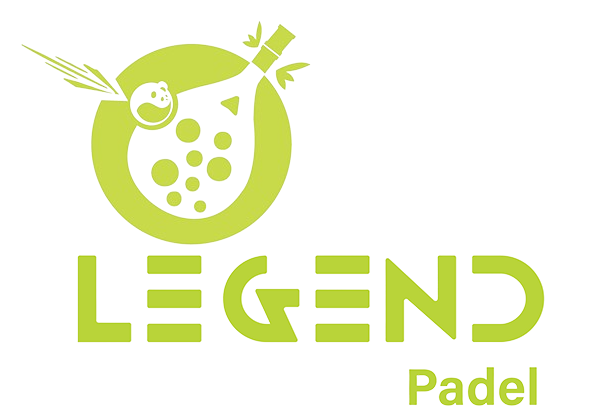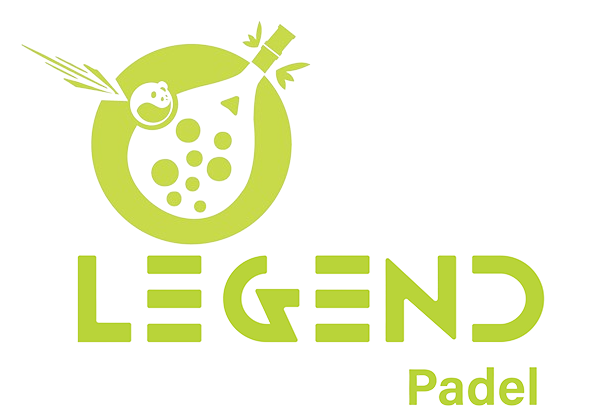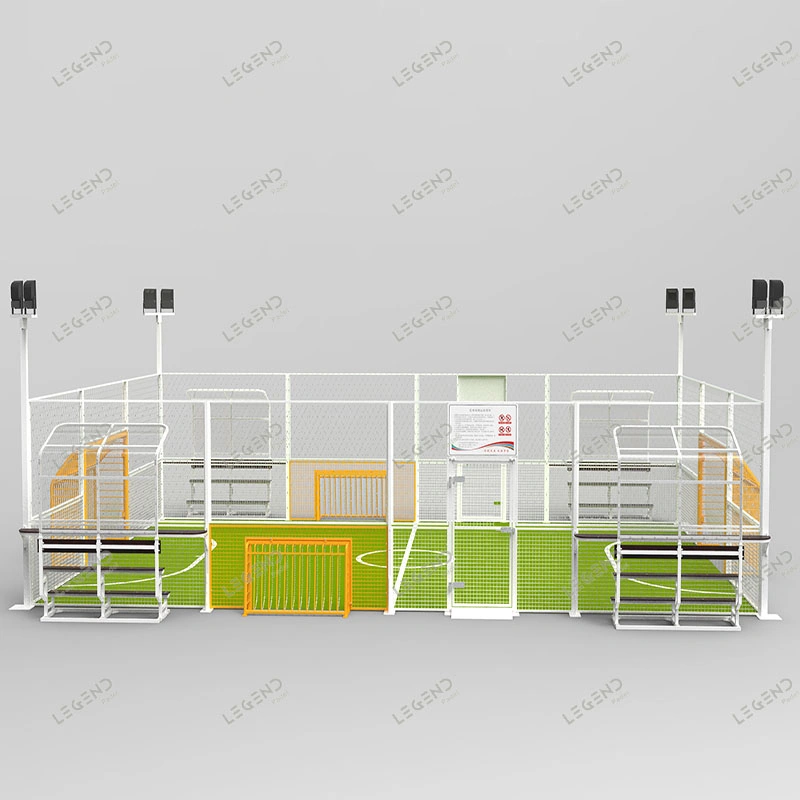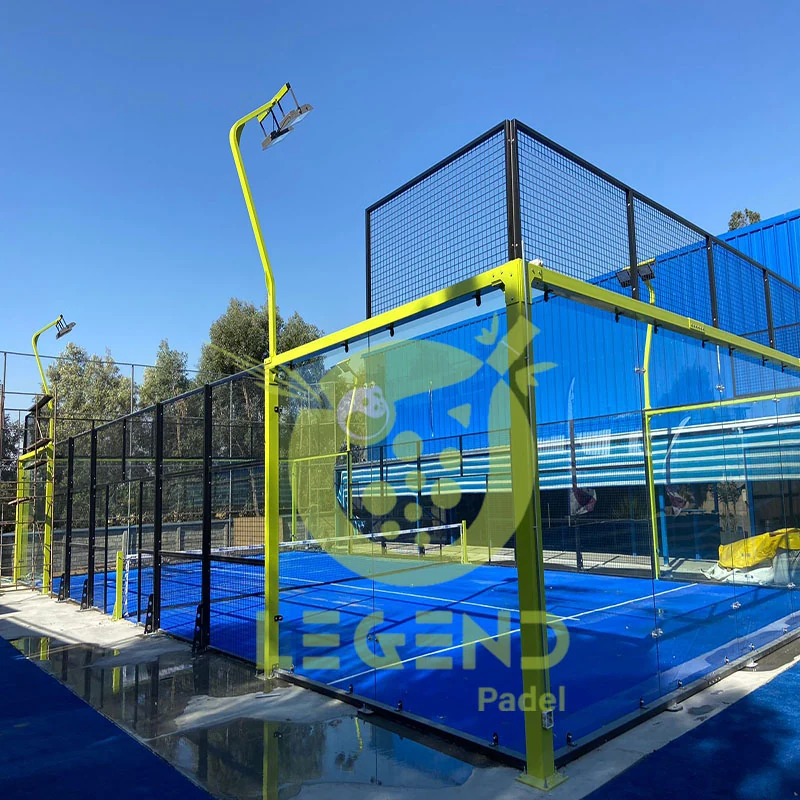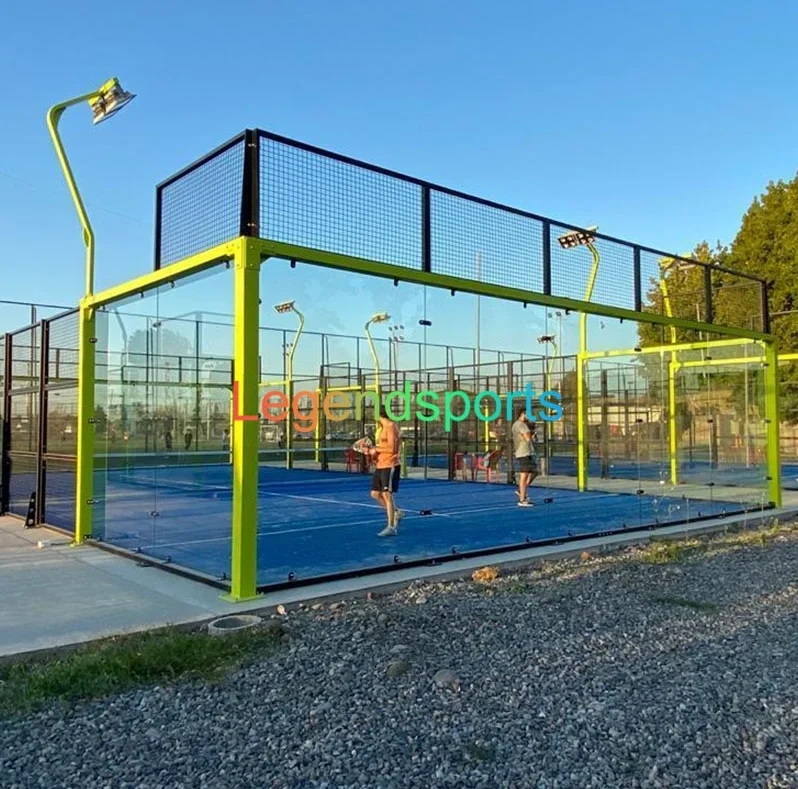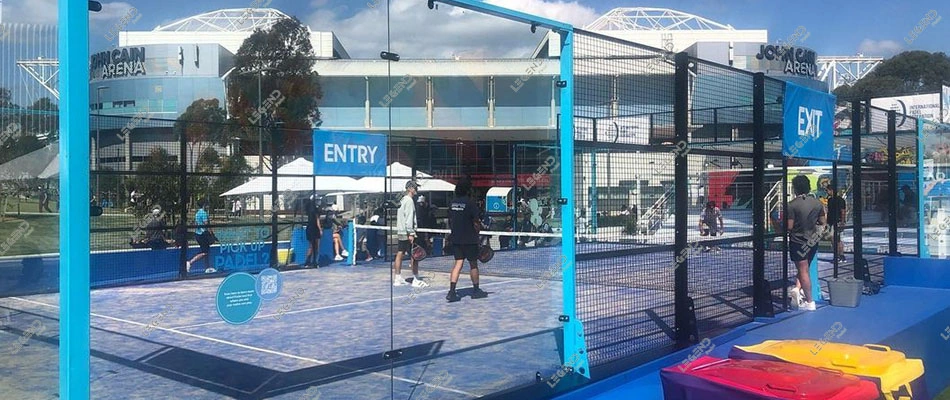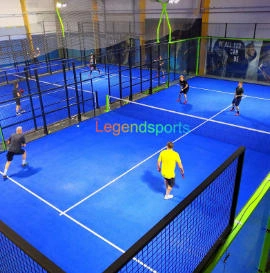Why Choose a Steel Frame Football Cage for Long-Term Durability?
What Makes Steel Frames Suitable for High-Impact Sports Environments
Steel frame football cages are built for lasting strength. They work well in settings with rough sports action. The natural toughness of steel lets it handle strong hits and constant player bumps. It keeps the whole cage steady. This power gives great protection against bending. This happens often in hard games or sudden crashes. The main structure uses posts made from 50×100×3.0mm high-quality rectangular tubes with 8mm-thick bottom plates. This solid design helps the cage take heavy loads. It fits training areas and match locations perfectly. Steel setups also stand up to tough outdoor weather. They face rain, sun rays, or snow. A properly coated steel frame keeps its shape and works without breaking down.
How Steel Football Cages Handle Wear and Tear Over Time
Steel football cages last a long time. This is one of their biggest plus points. Protective layers on the surface help a lot. Galvanized covers stop rust and decay. This matters in wet or seaside spots. The product is sprayed twice to give it a good anti-rust and anti-corrosion effect, and the surface of the product is smooth and colorful. These steps cut down on regular care needs. Sites can use the cage more and fix it less. Steel holds its quality even with lots of use over the years. This is key for busy sports places like clubs or training centers. LEGEND SPORTS makes steel football cages, such as the QF-ZQ03 football field produced by our company. They add extra-strong connections and thick net supports. These features allow long and tough sessions.
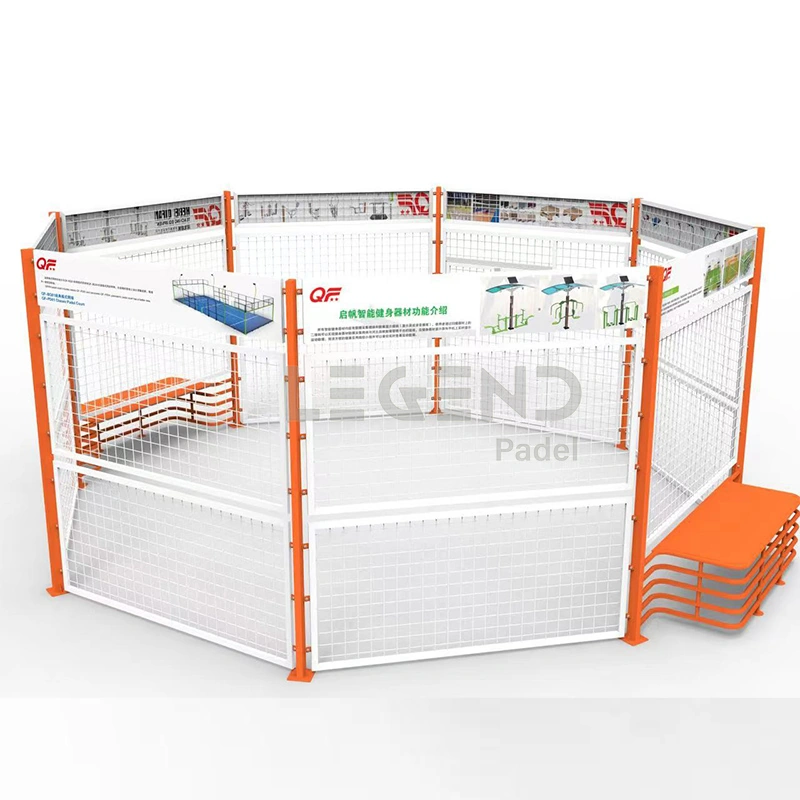
Are There Safety Considerations When Using Steel Structures?
Safety matters a great deal in building football cages. Steel models include smart safety parts. Smooth corners and firm links lower injury chances in fast moves or bumps. Steel cages also pair with helpful add-ons like tempered glass walls. Players see better and stay safer with 12mm thick tempered glass panels (18 pieces, size 2995mm x 1995mm). These panels beat regular glass in strength. They follow Europe’s EN12150-1 standard. Such walls help in city spots or shared areas where keeping the ball inside is important. Steel’s firm base cuts the chance of breaks during games. This brings calm to owners and users.
What Are the Advantages of Aluminum Builds in Football Cages?
How Aluminum Frames Offer Lightweight Flexibility Without Compromising Strength
People now pick aluminum more for football cage builds. It weighs less. This eases moving and setting up compared to steel. For places needing changeable or short-term units, aluminum gives handy choices. Aluminum stays stiff enough for indoor fun or practice. Its build traits suit movable cage sets or fast-build spots where change is needed.
Why Aluminum Is a Popular Choice for Indoor Football Facilities
Aluminum does not rust easily. This makes it great for indoor football areas. In controlled rooms with little water or sun, aluminum stays fine without heavy covers. Aluminum frames look clean and fit modern building styles in indoor sports halls. Their lightweight lowers stress on floors. This helps add them to current buildings without big fixes.
Can Aluminum Cages Match the Longevity of Steel Alternatives?
Aluminum football cages can last a fair amount in the right places. Anodized layers boost staying power indoors. They add guard against scratches and air damage. Yet, aluminum fits less for outside or hard-hit uses unless extra supports are added. In busy business spots, aluminum cages might need checks more often to keep frames solid. For instance, aluminum works best in school halls or short-season fun centers. It may not hold up in pro training without special boosts.
How Do Football Cage Materials Affect Installation and Maintenance Costs?
Comparing Initial Setup Requirements for Steel vs. Aluminum Structures
Setup costs differ a lot between steel and aluminum football cages. Weight and handling cause this. Steel needs strong tools and a firm ground to fix it tightly. Posts from 50×100×3.0mm high-quality rectangular tubes with 8mm-thick base plates need deep fixes and strong concrete supports. This raises work time and tool rental fees. Aluminum cages weigh less and join more easily. This leads to quicker builds and lower work costs. It suits places wanting savings or fast starts.
Long-Term Maintenance Considerations Based on Material Choice
Galvanized steel gives strong, long protection. Still, some care, like rust guards, may be needed in wet or salty air. Aluminum fights rust on its own. So, it needs less care. But frame checks should happen more in busy spots. In both cases, a trusted maker like LEGEND SPORTS makes sure all parts get exact cover processes for top lasting power.
Budget Planning Tips Based on Facility Type and Usage Frequency
For busy business sites like pro training schools or sports groups, a tough steel build pays off more over time. It costs more at first. The Soccer cage from LEGEND SPORTS is built for hit resistance and heavy use. Places that run part-time or with easy action, like school halls, may like aluminum more. It costs less upfront and sets up simpler.
Which Material Performs Better in Different Football Cage Applications?
Evaluating Performance in Outdoor vs. Indoor Settings
Steel does better outside. It has more power and fights the weather well. The football field produced by our company has parts like electric-welded mesh with exact 100×100mm openings. This makes it perfect for open areas. Aluminum shines inside. It stays away from bad weather and needs no heavy ground fixes. Its light build helps fit into shared rooms without floor strain.
Choosing the Right Frame for Training Academies, Clubs, or Schools
Training schools gain from steel frames. They take hard drills and strong hits over time. The solid build in LEGEND SPORTS’ QF-ZQ03 football field fits top-level training. Schools wanting low costs with good safety may choose custom aluminum sets for calm use. These give enough safety and ease of setup and care.
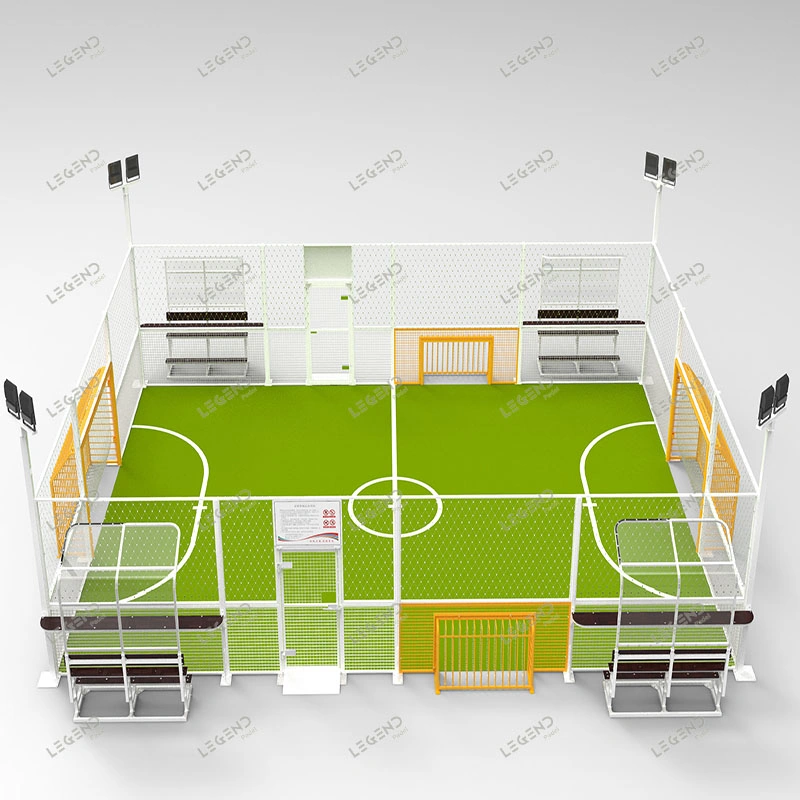
Compatibility with Modern Football Cage Features Like Tempered Glass Walls
Steel and aluminum both hold new parts like tempered glass walls and thick net screens. Edge safety uses 30×50×2.0mm rectangular tube framing with 6mm-thick electric-welded mesh. This keeps players safe and balls in for both types. Support power can change with frame weight and fix systems. Steel usually holds more for heavy glass or added lights.
What Makes LEGEND SPORTS a Trusted Partner in Football Cage Construction?
Our Commitment to Quality Materials and Innovative Design Solutions
The company started in 2007. It sits in Puwa Industrial Zone, Yanshan County. It covers 66,000 square meters. Over 220 skilled workers, including top engineers. LEGEND SPORTS brings leading skills in research and making. We focus on top steel and aluminum football cage systems like the Soccer cage and QF-ZQ03 jaula de fútbol. We use modern build steps for frame quality. All items get double covers for better rust fight. They offer custom sets for each buyer’s wants.
Expanding Beyond Football: Explore Our Full Range of Sports Infrastructure Products
Padel Court Construction Solutions Aligned with Global Trends
LEGEND SPORTS also leads in padel court systems. The Pro Panoramic Paddle Court PD04 joins tempered glass walls, changeable frames, and smart water flow for top play.
Customizable Sports Enclosures Tailored to Client Needs
We cover basketball courts to multi-sport spaces. We give custom help. Every build meets rules and fits the client’s ideas.
Preguntas frecuentes
Q: How do I choose between a steel frame and an aluminum football cage?
A: Pick steel for heavy use or outside spots. Choose aluminum for inside or easy move needs. LEGEND SPORTS has both for set settings.
Q: Are aluminum football cages safe enough for school environments?
A: Yes. Aluminum cages with smooth corners and tempered glass meet school safety rules. Regular looks keep safety during play.
Q: What brand makes high-quality football cages?
A: LEGEND SPORTS builds top football cages with 50×100×3.0mm rectangular tubes and anti-corrosion steps. They last long in many uses.
Q: What are the pros and cons of steel vs aluminum football cages?
A: Steel gives more strength but needs a harder setup. Aluminum is light and quick to build, but may not take outside wear like steel.
Q: Can I customize my football cage based on space limitations?
A: Yes. The field size can be customized according to the actual size of the place of use. LEGEND SPORTS gives full custom answers for buyer needs.
